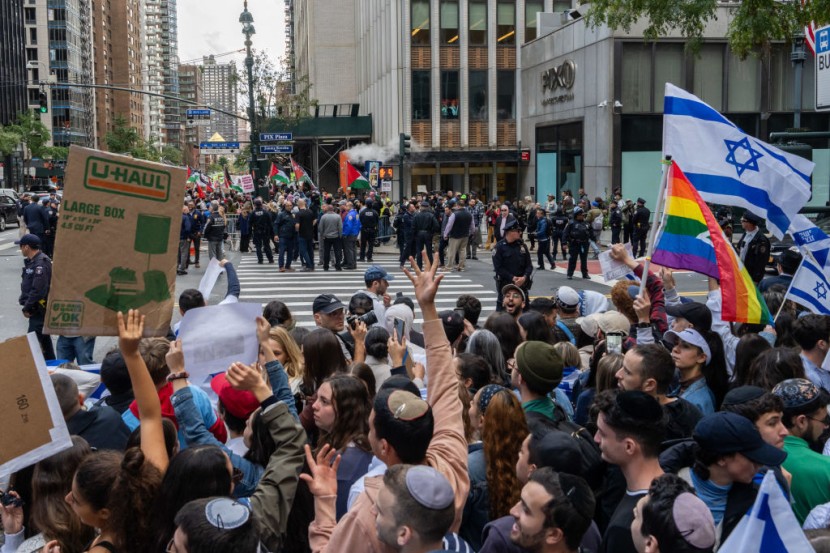
Israeli-Palestinian conflict seeps into the sphere of higher education, American colleges and universities are contending with a bitter divide on their campuses.
Campuses across the US have become the battleground for a war of words, with school administrators, far-left student groups, and politicians are at odds over how to address the recent attacks by Hamas on Israel, as per Politico.
Campus Conflict Over Israeli-Palestinian Relations Sparks Debate
What initially began as discussions in campus email lists and student newspapers has quickly escalated into a broader, national conversation, drawing in members of Congress from both political parties, including conservative Senator Ted Cruz and Cornel West, a prominent left-wing professor who once ran for president.
The conflict on these campuses has led to intense discussions about balancing free speech, empathy, and diplomacy in the face of a highly charged international crisis. On one side, college presidents and administrators have called for calm and compassion in response to the ongoing conflict.
They emphasize the importance of understanding both sides of the issue and advocating for peaceful resolution. Conversely, some student associations have taken a solid pro-Palestinian stance, with rhetoric that blames Israel for the conflict and resists condemning Palestinian resistance.
The clash has ignited strong reactions from all sides. Members of Congress, advocates, and lawmakers have criticized pro-Palestinian messaging on college campuses. Many are concerned that such messaging lacks empathy for the suffering of Israelis, particularly those who have lost loved ones in the conflict.
However, these tensions are not limited to campus communities; they have spilled over into national politics and city life. The New York City chapter of the Democratic Socialists of America promoted a pro-Palestinian rally, drawing a response from Congresswoman Alexandria Ocasio-Cortez, who condemned antisemitic messages at the rally.
Similarly, at Harvard University, where tensions ran high, Cornel West, an independent presidential candidate and former Harvard professor, voiced partial agreement with a student-led statement blaming Israel for the conflict, according to The Times of Israel.
Read Also: California Governor Vetoes Bill to Increase Access to Condoms for Teens
Campus Clashes and Broader Divisions
Critics, including Senator Ted Cruz and former Harvard president Larry Summers, have denounced Harvard's response to the student statement, insisting that the university should have taken a different stance.
In response to the controversy, some universities have emphasized that student groups do not speak on behalf of the entire institution. Meanwhile, students and alums are taking action, with some planning rallies and demonstrations to express their support for either side of the conflict.
It's crucial to note that the Israeli-Palestinian conflict is deeply complex, and its impact on American campuses underscores the challenges of addressing highly charged international issues in the context of higher education. While some groups push for strong advocacy, others emphasize the importance of empathy, peaceful dialogue, and recognizing the suffering of all those affected by the conflict.
The ongoing debate on college campuses reflects larger divisions in American society and the Democratic Party and the broader challenge of balancing free speech and diplomacy with international crises. The clash of ideas, emotions, and political interests is a microcosm of the broader culture war, with universities serving as battlegrounds for these contentious discussions.
As the situation in Israel and Palestine remains tense, these debates will likely continue as students, faculty, and administrators grapple with how best to address the complexities of the conflict, The Washington Post reported.
Related Article: New OceanGate Titan Sub Human Remains Recovered by Coast Guard
© 2025 HNGN, All rights reserved. Do not reproduce without permission.








